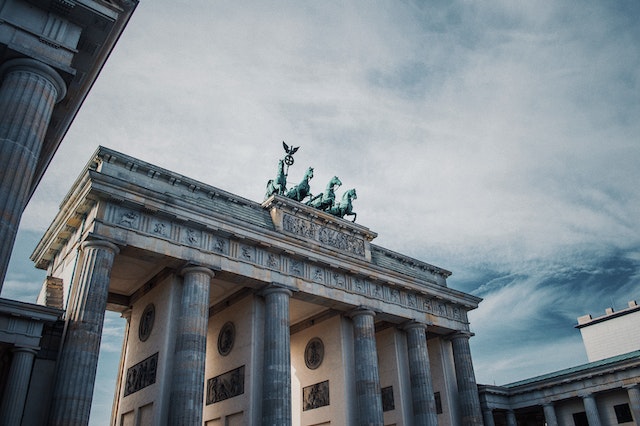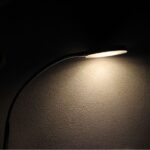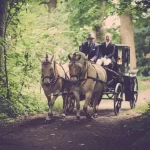In February 1796 young Beethoven was in Prague. From here, he wrote to his brother about his plan to continue his tour and go to Berlin. This article will cover his stay in Berlin.
For Berlin the household name Beethoven was not novel. If not by else, in October 1793 a notice was published in the Berliner Musik-Zeitung, placed by Christian Neefe, Beethoven’s most significant music teacher in his Bonn period. The note informed this important city of the followings,
“Ludwig van Beethoven, assistant court organist and now unquestionably one of the foremost pianoforte players, went to Vienna at the expense of our Elector to Haydn in order to perfect himself under his direction more fully in the art of composition.”
Berlin was a very welcoming place for science and arts, for thinkers and musicians. From 1738 to 1768 none other than Carl Philipp Emanuel Bach (Johann Sebastian Bach’s fifth child) lived and worked in the city, who was a prime representative of feelings and sensitivity in music, making him a forerunner for Romanticism. In his famous essay Toward the True Art of Clavier Playing he declared that the main aim of any music is to move the heart, and to be able to do that, one must play from his soul. Haydn called it “the school of schools”, Mozart declared about him “He is the father, we are the children.” and even Beethoven regarded it highly, writing to his pupil Karl Czerny “be sure of procuring Emanuel Bach’s treatise.” No wonder, after thirty years of C.P.E. Bach, Berlin had excellent taste in music.
In June 1796, Beethoven entered Berlin the capital of Prussia with high hopes. He knew the king, Frederick William II. (the nephew and successor of Friedrich II., Friedrich the Great) is not only a patron of arts, but has excellent taste in music. Previously both Haydn and Mozart dedicated works to him. When Mozart was in the city almost a decade before, the king had commissioned him nearly 4 000 florins for compositions.
Beethoven stayed in Berlin for two months, June and July 1796. During his stay, as usual, he had played at court and noble houses making great impression with his improvisations. It seems, though, that C.P.E. Bach softened the Berlin audience a bit more than what Beethoven could tolerate. He was often surrounded by audiences so moved that they broke into tears. Maybe he was embarrassed by these expressed emotions, but the young musician could not properly handle these situations.
The king had to be impressed, as he offered Beethoven a position at the court, something he kindly refused. The reason, at least partly, had to be the emotional audience. Years later Carl Czerny wrote a possible explanation,
“His improvisation was most brilliant and striking. In whatever company he might chance to be, he knew how to produce such an effect upon every hearer that frequently not an eye remained dry, while many would break out into loud sobs; for there was something wonderful in his expression in addition to the beauty and originality of his ideas and his spirited style of rendering them. After ending an improvisation of this kind he would burst into loud laughter and banter his hearers on the emotion he had caused in them. “You are fools!” he would say. Sometimes he would feel himself insulted by these indications of sympathy. “Who can live among such spoiled children?” he would cry, and only on that account (as he told me) he declined to accept an invitation which the King of Prussia gave him after one of the extemporary performances above described.”
To Goethe, many years later, Beethoven recalled this experience, saying “That’s not what we artists wish, we want applause!”
During his stay he met and worked together with Friedrich Heinrich Himmel (pianist and composer) and the Duport brothers, Jean-Louis and Jean Pierre (cello players). He also shook hands with Carl Friedrich Christian Fasch and Carl Friedrich Zelter, both musicians and composers. Beethoven got on well with the cello virtuosos, but things were less fluent with Himmel. About their relationship and a humorous anecdote connecting the two, you can read more here: Beethoven anecdotes: a lamp for the blind.
Beethoven worked on and finished more compositions during his stay in Berlin. Most importantly, commissioned by the king who was a cello player himself, two cello sonatas for the Duport brothers. These works are his best compositions from this year. He finished a set of variations for cello and piano on a theme from Handel’s Judas Maccabaeus, and worked on his Symphony in C Major (his first symphony), also on a third piano concerto and on his op. 16. Quintet for Piano and Winds.
The two cello sonatas in F and G major were dedicated to King Frederick William II. and published as op. 5, next year. The combination of cello and piano were novelties, something Haydn or Mozart did not do before. Cello itself was on the raise, coming out of the shadow as supporting instrument, becoming more and more important in fresh music compositions.
Beethoven did not leave Berlin empty handed. The king presented him with a casket full of French golden coins (Louis d’or). As he remembered later, “the casket was no ordinary box but one suitable for presentation to ambassadors.”
After his Berlin tour Beethoven returned to Vienna.








